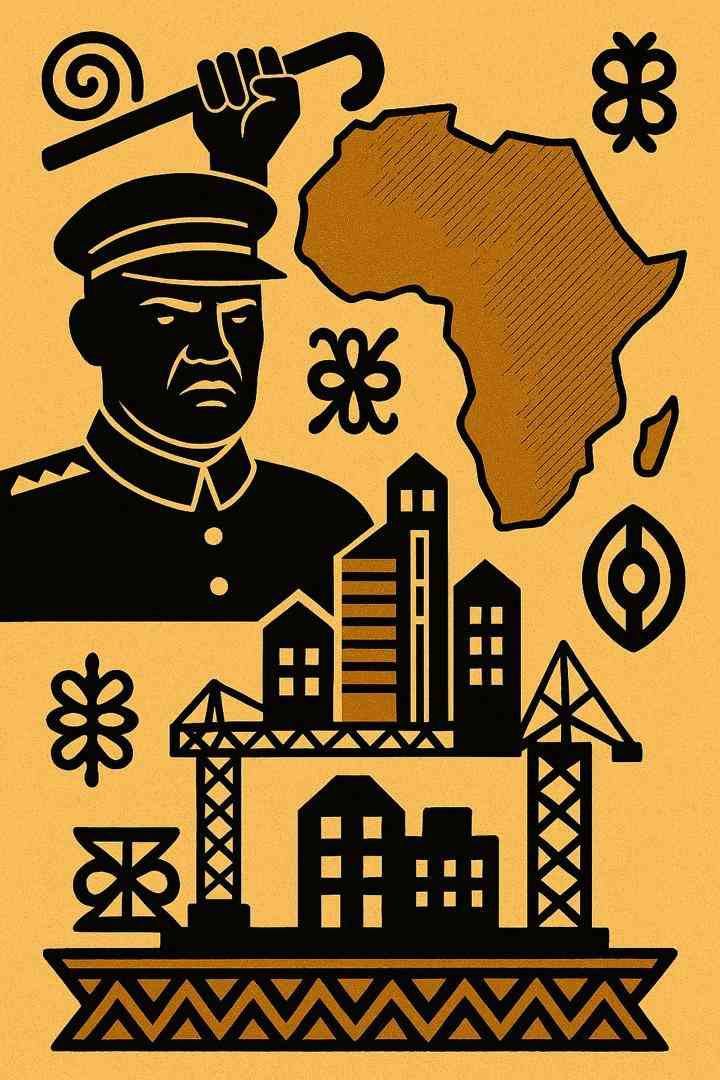
This week, Finance, Economic Development and Investment Promotion minister Mthuli Ncube presented the 2024 national budget speech, which if passed becomes the 2024 national budget.
While the budget speech does not automatically become a budget, it sets the footing for review, debate, and voting by parliamentarians, upon then will become an approved budget.
Thus, this column seeks to unpack the socio-economic implications of the 2024 proposed budget and its policies.
Budget assumptions
The assumptions underpinning the proposed 2024 national budget, include normal-to-below-normal rainfall season due to the El Niño effect, a slowdown in global economic growth amid geo-political tensions, declining international commodity prices, continued use of the multicurrency regime, tight fiscal and monetary policies, sustainable budget deficit, and stable Zimbabwe dollar (ZWL) and inflation.
The bulk of these assumptions are adverse, and this helps explain the projected moderation of national output (GDP) growth to 3,5% in 2024 from 5,5% expected in 2023.
Economic activity will be weighed down by the projected El Niño, which will subdue the agriculture sector by causing crop failure, below-average 2024 harvests, high food prices, low labour opportunities, and increased food insecurity.
Also, export receipts will likely plummet significantly because of falling global mineral commodity prices as global supply chains improve, coupled with projections of economic slowdown in advanced nations.
- Mavhunga puts DeMbare into Chibuku quarterfinals
- Bulls to charge into Zimbabwe gold stocks
- Ndiraya concerned as goals dry up
- Letters: How solar power is transforming African farms
Keep Reading
Mineral exports account for at least 70% of Zimbabwe’s annual export receipts; falling mineral prices will greatly perpetuate foreign currency shortages in the formal markets which in turn limit the importation of essential goods and services and might also destabilize the local currency.
The lack of political will to implement key reforms (economic, governance, and land tenure system) will sustain corruption, resource leakages, and market pricing distortions.
Other outlook risks include the likely persistence of electricity shortages, elevated fuel prices, increased financial repression (excessive capital controls), public debt distress, poor public service delivery, and geoeconomics fragmentation fuelled by rising global geopolitical tensions.
As such, the Treasury’s expectations of stable local currency and prices (3% month-on-month inflation) are likely to be a tall order given the expected elevated spending pressures as the government tries to cushion the economy and citizens, particularly vulnerable groups.
Budget ceiling
The proposed 2024 budget has an expenditure ceiling of about ZW$58,2 trillion, which is 158% higher than ZW$22,6 trillion projected by the end of 2023.
It is, however, not clear what explains the astronomical jump in the 2024 budget ceiling when the economic activity is expected to moderate significantly in 2024.
Also, the assumptions underpinning the 2024 budget, include stable ZWL and inflation, which only supports moderate growth in revenue collections.
For me, it is very hard to believe that the additional tax proposals in the proposed 2024 budget will generate 100% of revenues collected in 2023.
Cognisant of the foregoing, I submit that the Treasury has silently admitted that the official exchange rate is likely to double in 2024.
This will be driven by elevated fiscal spending (borrowing and money printing), a phenomenon generally associated with drought years.
When El Niño weather conditions hit Zimbabwe in the 2018/19 Agriculture season, reserve money supply (M0), a monetary aggregate under the direct control of the central bank, spiked substantially by 170% to close December 2019 at ZW$8,8 billion.
The 2024 budget presented by Professor Ncube brings back the dark history of the 2008 trillion era when the local unit and prices were too volatile; wiping out a significant chunk of income, savings, and wealth.
After the conclusion of the budget speech, I believe economic agents immediately got the signal and have already started forming their expectations.
So, without a seismic policy shift to support the ZWL like, for instance, demanding 100% of government taxes to be settled in local currency, this could be the last nail in the coffin.
Already the economy is witnessing rapid cash dollarisation, with official statistics agency estimating that at least 80% of transactions are now conducted in United States dollars (USD).
Budget allocation benchmarks
The national budget is a crucial document that illuminates government decisions to invest and consume, borrow and lend, and tax and spend.
Generally, the budget allocations should be guided by regional and international benchmarks Zimbabwe is a signatory to.
These benchmarks function as indispensable tools for addressing the transparency and accountability deficit associated with long-term targets.
It is highly commendable that some of the proposed 2024 budget allocations have shown improved willingness by the government to commit to international benchmarks.
For instance, of the expected 20% spending on education, the 2024 budget is allocating 18% of budget resources, up from 14% committed last year.
Also, combined transport and infrastructure will gobble 14,6% of the budget, which exceeds the threshold of the 2009 AU Declaration.
In addition, the 2024 budget has met the constitutional requirement of setting aside 5% of the budget funds for devolution funds (fiscal transfers).
However, despite dilapidating healthcare infrastructure, shortage of medical drugs and equipment, and increased brain drain, public spending on the healthcare sector remains low; failing to meet the Abuja Declaration threshold of 15%.
Again, despite the ongoing widespread outbreak of cholera, the 2024 proposed budget set aside a paltry 1,17% of the total budget toward water and sanitation.
Moreover, despite projections of El Niño weather conditions, the proposed budget earmarked only 7,39% of the budget toward the agricultural sector, down from 8,05% in 2023.
Yet, more fiscal spending is expected in this sector as the government provides farm subsidies and food aid to vulnerable groups and communities.
Revenue enhancement
The significant jump in the 2024 budget ceiling means that the Treasury will have to find new revenue-enhancing measures.
Unfortunately, while increasing existing tax heads, Ncube has further proposed additional taxes, which will significantly deteriorate the welfare of economic agents, particularly the poor majority.
For instance, the proposed increase in toll fees and fuel levy will have a negative bearing on the cost of doing business and public transportation costs.
Also, with the ongoing increased exodus of Zimbabweans in search of greener pastures abroad, hiking passport fees will lead to illegal immigration thus forcing expatriates to work in menial jobs.
With increased allegations of corruption by officials at the Central Vehicle Registry, the massive hike in vehicle registration fees proposed in the 2024 budget will further entrench corruption thus disadvantaging law-abiding citizens.
While the designation of civil servants’ US$300 Covid-19 allowance as a pensionable emolument has the effect of increasing the value of salaries, it will also now become liable for tax purposes. Thus reducing the disposable income for the already low-paid civil service.
Be that as it may, there are some progressive tax proposals put forward such as the sugar tax, whose proceeds will be ring fenced to fight non-communicable diseases like cancer.
It is reported that most, if not all of Zimbabwe’s public hospitals lack functional cancer machines.
Also, the proposed budget seeks to introduce a wealth tax on residential properties worth at least US$100 000.
If property valuation and tax collection modalities are fine-tuned, this tax will go a long way in ensuring that the Treasury reaches the assets of wealthiest citizens thus increasing the government tax revenues and making the tax system fairer.
In addition, compelling miners like lithium miners to beneficiate extracted minerals will help strengthen value chains and increase both export earnings and employment.
Moreover, the newly introduced tax head, the Domestic Minimum Top-Up Tax (DMTT), is a game changer in the fight against the tax race to the bottom.
To attract new investments, oftentimes Zimbabwe offers tax incentives to multinational companies (MNCs).
However, low tax means Zimbabwe is losing revenue from tax profits enjoyed by MNCs hence ceding the taxing rights to the host country of MNCs' headquarters.
Tax relief measures
To provide taxpayer relief, the 2024 proposed budget will review the tax-free threshold upward to ZW$750 000 per month or ZW$9 million per annum, and adjust the tax bands to end at ZW$270 million per annum, above, which tax will be levied at a rate of 40%.
Also, the local currency tax-free bonus threshold will be increased from ZW$500 000 to ZW$7,5 million, with effect from November 1 2023.
More so, the Treasury reviewed the tax-exempt threshold on withholding tax on agricultural commodities from US$1 000 per annum to US$5 000 or local currency equivalent.
Increasing the salary and bonus tax-free thresholds will go a long way in cushioning lowly-paid workers against the effects of inflation.
However, at the current official rate, the proposed tax-free salary threshold of ZW$750 000 is equivalent to a meagre US$130, an amount that is inadequate to fund an individual’s monthly total consumption requirements.
With persisting ZWL depreciation and inflation pressures, the threshold will soon fail to provide any cushion to the average earning worker.
Public debt
The proposed 2024 budget has shown that as of September 2023, Zimbabwe has domestic creditors of US$5 billion, down from US$5,2 billion in December 2022 and external creditors of US$12,7 billion, declining from US$12,8 billion as of December 2022.
The retrenchment of debt is largely attributable to a decrease in liabilities on the RBZ balance sheet by US$684.8 million.
However, the nation remains trapped in debt distress, that is, struggling to honour financial obligations to its creditors, and debt restructuring is required.
This is shown by ballooning arrears and penalties; of the US$9,1 billion bilateral and multilateral debt, 76% (US$7 billion) are principal arrears, interest arrears, and penalties.
Of all the government ministries, departments, and agencies (MDAs) bids totalling ZW$110 trillion, the Treasury only satisfied 53% (ZW$58,2 trillion) of the bids received.
In addition, the proposed 2024 has a huge budget deficit of ZW$4,3 trillion (1,5% of GDP). All this shows that debt distress has severely collapsed the fiscal space.
The 2024 proposed budget has laid bare the negative impacts of high indebtedness as the country now spends more resources on debt servicing than on social protection.
In 2023, the Treasury paid US$55,6 million and US$10,7 million on external debt servicing and token payments respectively.
Again, in 2024, the budget resources totalling ZWL948.3 billion are earmarked for interest payments, an amount far exceeding the budget votes allocated to some key ministries like housing (ZW$353 billion), energy (ZW$90 billion), youths (ZW$210,2 billion), and women (ZW$188,1 billion).
As such, there is a need to continue dialoguing with creditors and swiftly implement identified reform matrices (economic, governance, and land tenure systems) to receive debt relief.
In addition, debt transparency must be increased and mortgaging of natural resources for more debt be discontinued.
The official foreign exchange rate as of November 30 2023 stood at US$1:ZW$5 791,08.
Sibanda is an economic analyst and researcher. He writes in his personal capacity. — [email protected] or Twitter: @bravon96.










